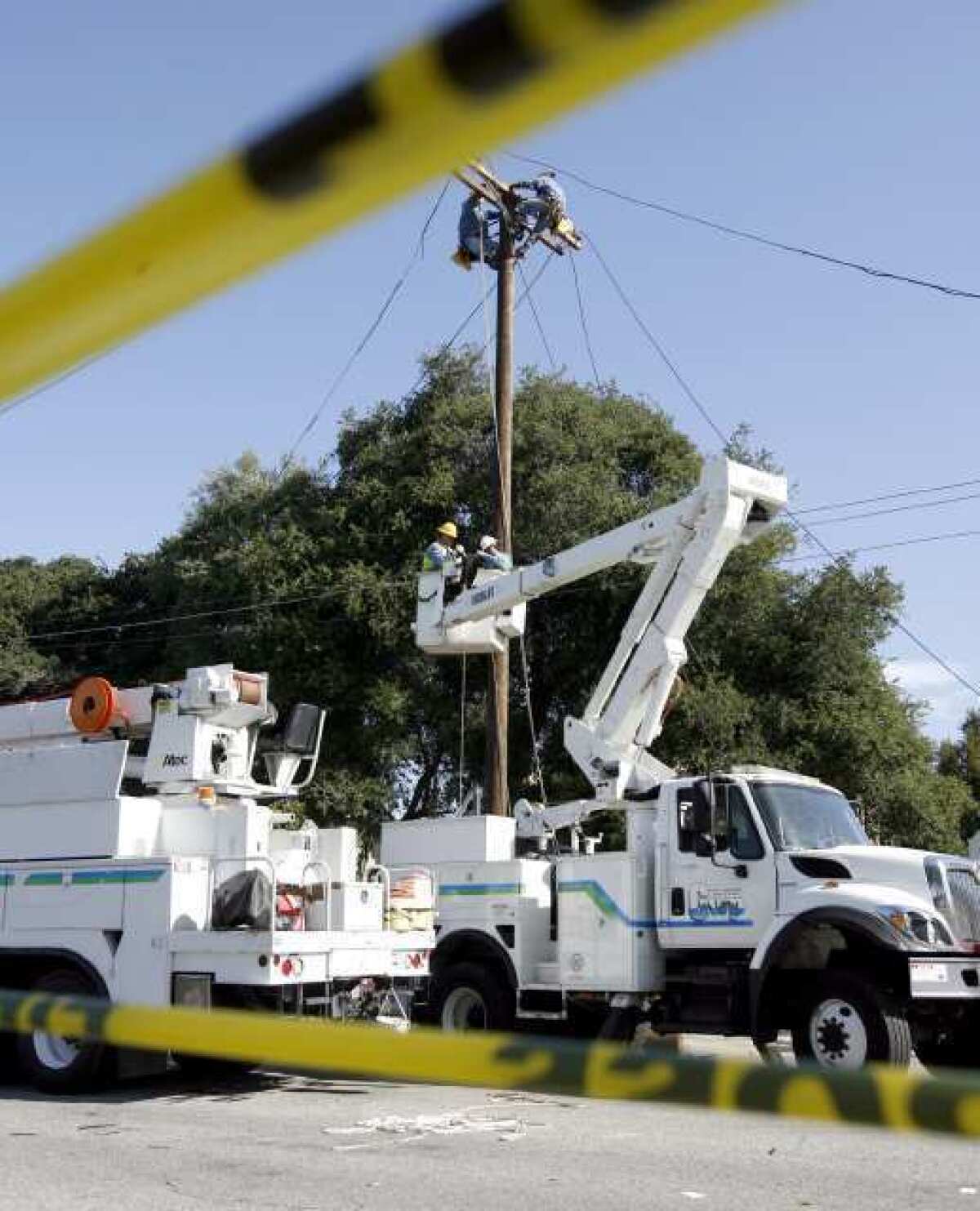Glendale OKs ballot measures for fund transfers, city treasurer post

An initiative that would simplify how Glendale transfers tens of millions of dollars from the city-owned utility to pay for general public services is officially going on the April ballot.
City Hall officials say the changes, which the City Council approved Tuesday for the ballot, would update a decades-old practice and bring it in line with modern accounting principles.
Critics, though, contend it will drastically change what city leaders had intended more than 70 years ago, when the revenue transfer was established. Critics also argue the transfer is akin to a back-door tax because the withdrawals artificially inflate customer rates.
Both sides point to old documents and the city’s charter to bolster their positions.
City Manager Scott Ochoa said on Tuesday “there’s no voodoo” involved in the city’s push to streamline the transfer rules.
“At the end of the day, we have a charter that is drafted in a time that does not reflect the current way we do business,” Ochoa said.
City officials agreed to transfer about $21 million from the electricity side of Glendale Water & Power this year. The city once transferred millions from the water utility as well, but stopped the practice as a precaution over uncertainty about how it would stand up if challenged in court.
Retired law professor Harry Zavos — one of the loudest critics of the revenue transfers — at the time had argued that the water revenue transfers were violating state law.
Both sides agree that the city can transfer funds from the utility to the General Fund, but they disagree on where that money should come from, and if it should be curtailed if the utility is in a financially precarious situation.
City officials say it should be taken directly from operating revenues, but Zavos says it should be limited to a percentage of operating revenues available in the utility’s surplus — and only if one exists.
Both the charter, as well as the original resolution from 1941 drafting the transfer, reference taking money from a surplus fund and equate the transfer to a percentage of operating revenues.
“That’s where the problem lies,” said Councilman Rafi Manoukian, a charter critic who also voted for the April ballot initiative in an attempt to “let the community decide.”
But even if voters turn down the initiative, city officials say they plan to continue to transfer money directly from the operating revenues because they believe they are on solid legal ground. The point of the initiative, they say, is to clean up language so that future city councils won’t have to trudge through the issue again.
Decades ago, Glendale Water & Power was flush with money, but no longer. The water side has already seen years’ worth of rate increases approved this year, and officials plan to discuss an electricity rate bump after the upcoming municipal election in which three City Council seats will be up for grabs.
Those who wish to write ballot arguments for and against the initiative must apply by Jan. 7.
Another ballot initiative approved this week could change the city treasurer from an elected position to an appointment approved by the City Council.
If voters approve the change, the person who wins the open treasurer’s seat in April may end having campaigned for nothing.
--
Follow Brittany Levine on Google+ and on Twitter: @brittanylevine.